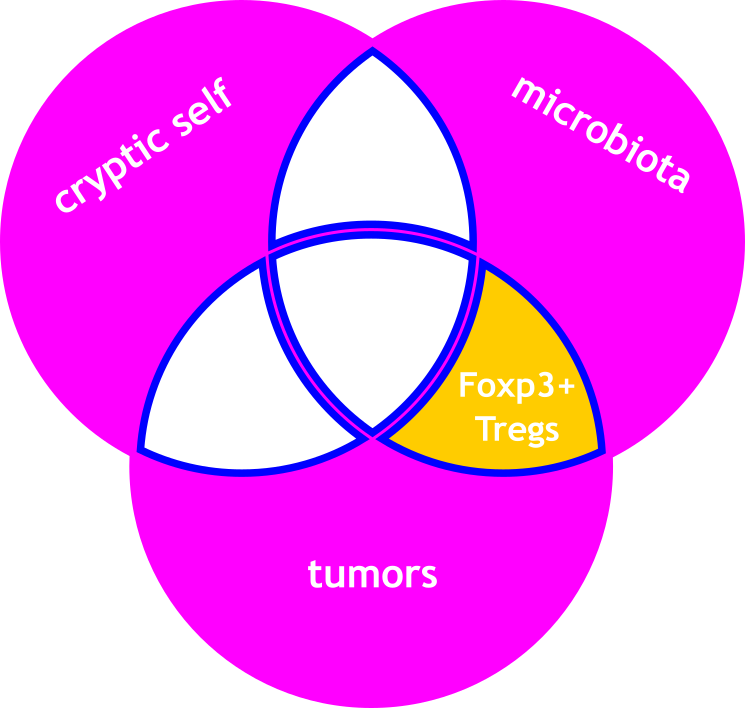Though neo-antigens frequently expressed by tumors are potential T cell targets, adaptive immunity is not always effective against them, maybe due to the tumor's immunosuppressive environment. While most current tumor immunotherapeutic approaches, both specific (adoptive T cell therapy or neo-antigen vaccination) and nonspecific (checkpoint inhibitors), target tumor immunosuppression with some notable successes in small cohorts of cancer patients, their overall effectiveness is entirely unpredictable, lacking durable clinical benefit for the majority.
At Tregeutix we are developing a novel discovery framework dubbed SPIRAL that uncovers the hierarchy of effective immune response to tumor neo-antigens. Analysis of data through SPIRAL reveals that cross-reactivity between epitopes from cryptic tumor neo-antigens, natural infections and specific microbiota determines effectiveness of anti-tumor immune responses in both natural and therapeutic conditions. SPIRAL can assist in identifying individuals most likely to respond to immunotherapy.
Unexpectedly, SPIRAL also predicts circumstances where accumulation of antigen-specific Foxp3+ regulatory T cells in tumors could inhibit their growth. Frequently, tumor immunosuppression entails tumor-supporting ineffective T cell responses against evolutionarily conserved germline 'neo-antigens'. Tumor infiltrating Foxp3+ regulatory T cells specific for such 'neo-antigens' could shut down such ineffective T cell responses and by extension allow other T cells with specificity for other neo-antigens to manifest themselves thereby resulting in effective anti-tumor immunity.

SPIRAL thus allows systematic discovery of members of microbiota that maintain cross-reactive Foxp3+ regulatory T cells involved in protection against tumors.
